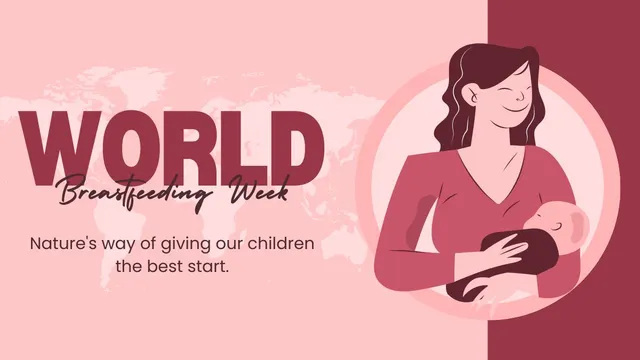- By Priyanka Munshi
- Fri, 02 Aug 2024 05:00 PM (IST)
- Source:JND
Breastfeeding Awareness Week 2024: Eating a healthy diet is essential for both mother and child, especially when nursing. The quality and quantity of a mother's breast milk, which serves as her child's main source of nutrition, are directly influenced by the foods she eats. The child will acquire the vital vitamins, minerals, and nutrients required for healthy growth and development if the mother eats a balanced diet full of fruits, vegetables, whole grains, lean meats, and healthy fats.
Breast milk's nutritional value can be increased by eating foods high in omega-3 fatty acids, dairy products, nuts, seeds, and leafy greens. Furthermore, a mother's fluid requirements may rise when breastfeeding, so it's critical to stay hydrated. It's also essential to stay away from processed meals, excessive caffeine, and alcohol to avoid any harmful impacts on the child. Proper nutrition during nursing helps the mother feel her best, builds a strong foundation for the baby's health, and promotes a joyful, healthy start for both.
Dr. Priyanka Suhag, a specialist in the Department of Obstetrics & Gynecology at the CK Birla Hospital in Delhi, spoke with Jagran English about foods to eat or avoid, particularly when breastfeeding. Dr. Priyanka asserts that nursing is a crucial time that necessitates close dietary monitoring to protect the mother's health and the baby's best growth.
Also Read: 5 Simple And Basic Etiquette Rule's You Must Follow At Your Work Place
Foods To Eat:
- Protein-Rich Foods: Incorporate lean meats, eggs, dairy products, beans, and lentils to meet increased protein demands.
- Whole Grains: Opt for whole grains like oatmeal, brown rice, and whole wheat bread, which provide sustained energy.
- Fruits And Vegetables: A diverse intake of fruits and vegetables supplies necessary vitamins, minerals, and fiber. Dark leafy greens, berries, and carrots are particularly beneficial.
- Healthy Fats: Sources like avocados, nuts, seeds, and fatty fish (e.g., salmon) contribute to the baby's brain development and overall health.
- Hydration: Adequate fluid intake is vital. Water, milk, and herbal teas are excellent choices. Lactating mothers should aim for at least 8-10 glasses of water per day.
Foods To Avoid:
- Caffeine: Limit caffeine intake as it can cause irritability and sleep disturbances in infants. One to two cups of coffee per day are generally considered safe.
- Alcohol: Alcohol consumption should be minimized. If consumed, it's advisable to wait at least 2 hours per drink before breastfeeding.
- Certain Fish: Avoid high-mercury fish such as swordfish, king mackerel, and tilefish, which can harm the baby’s developing nervous system.
- Spicy And Gassy Foods: Some infants might be sensitive to spicy foods or foods that cause gas (like broccoli, onions, and beans).

